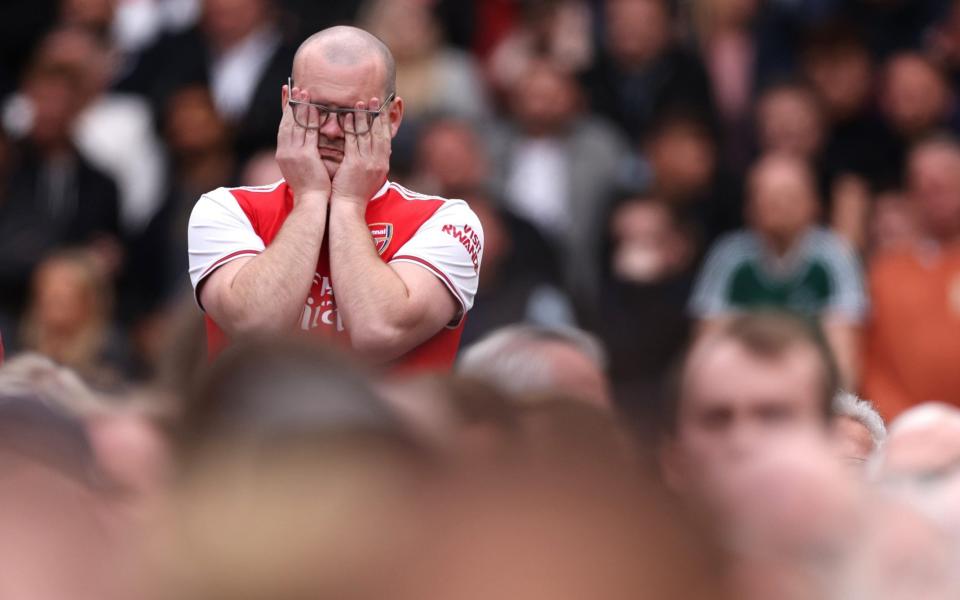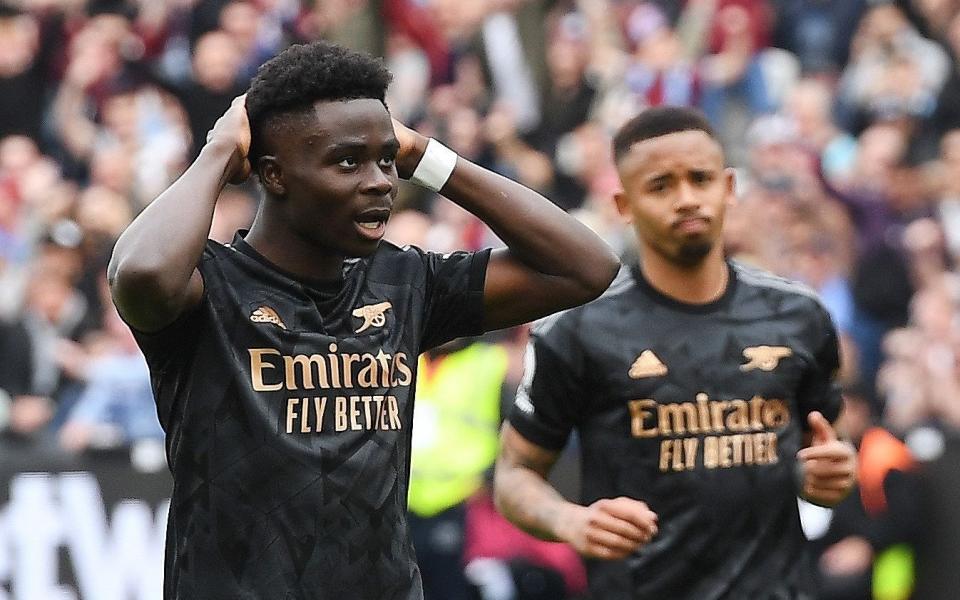Mikel Arteta faces crucial few days to save Arsenal's title bid

Steve Round, one of Mikel Arteta’s assistants at Arsenal, has been coaching footballers for longer than Bukayo Saka has been alive. Over more than three decades in the professional game, the 52-year-old has learnt to read a room and to judge the mood of an individual, and this time last year he decided to put a supportive arm around Saka’s shoulder.
Arsenal were training at the Emirates Stadium on a Friday afternoon, the day before a meeting with Manchester United, and Round and Saka decided to work together on penalties. The young winger had scored from the spot a few days earlier, at Stamford Bridge, but the scars of the previous summer’s Euros – when he missed in the shoot-out in the final against Italy – were still fresh.
And so, at the end of that day’s session, Saka and Round strolled down to one end of the ground and picked a spot. Between them, they agreed which way Saka would shoot if Arsenal were to win a penalty the following afternoon. Saka then took that exact shot, firing into the same corner again and again, as part of his preparation.
A day later, after 30 minutes of action, Saka was fouled in United’s penalty area. He grabbed the ball, puffed out his cheeks, and slammed his effort into the same corner of the net that he and Round had discussed 24 hours earlier. Practice, in this case, made perfect.
Almost exactly a year later, on Sunday, Saka had another penalty for Arsenal, against West Ham. He shot in the same direction but, this time, fired wide. Within 142 seconds of his miss, West Ham had equalised, and two points had been lost. “Apologies Gunners,” Saka said afterwards. “I’ll do everything I can to make it right.”

The story of Round and Saka’s one-to-one session is especially relevant now because it provides an indication of how Arteta and his coaching staff will handle the next few days. After back-to-back draws, in which Arsenal have twice surrendered two-goal leads, there are now serious questions being asked about the team’s mental strength.
This is only a blip, but many supporters fear it could quickly become a collapse similar to the end of last season, when Arsenal missed out on a place in the top four as a result of losses to Tottenham Hotspur and Newcastle United.
How will they try to prevent that from happening again? Arteta will take the lead this week, as he has done all season, and coaches such as Round, Albert Stuivenberg and Carlos Cuesta will also be there to speak to players one-on-one. Success is a collective pursuit but, as Round and Saka demonstrated last season, it also requires a personal touch.
Arsenal do not have an official club psychologist, with Arteta and his coaching staff instead leading the messaging and the mental management of the first-team players. They do use various consultants, however, who are turned to by the players on an individual basis, as and when required.
Arteta likes to read in his spare time, but only non-fiction books and only things that help him become a better manager. He is interested in leadership techniques and methods of management, and he regularly speaks to coaches in other sports, including rugby union’s Eddie Jones.
With a match against Southampton looming on Friday before the all-important meeting with Manchester City next week, Arteta will need to deploy the most effective of these techniques if he is to steady the ship. The title is still within Arsenal’s control but they cannot afford to stumble again, and they certainly cannot afford to keep blowing two-goal leads.
'Simply play football'
Prof Andy Lane, a sports psychologist at the Centre for Health and Human Performance and the University of Wolverhampton, says the key for Arsenal’s players is to live in the moment. The more liberated they feel, and the less concerned they are about the bigger picture, the better they will play.
“If they are thinking they are close to the end of the season, it brings anxiety,” he says. “They need to do as much as possible to simply play football. Focus on the quality of the movement, the enjoyment of playing. They could watch back successful performances, trying to recapture what it was like when they were winning.
“It is about being the best in that moment. Tennis players are a good example of this, because they can’t be thinking about anything else but the next point. One serve after another serve. It is easy to say, but very hard to do.”
What is certainly true is that Arsenal have shown a much-improved level of resilience this season. They have secured big victories against some of their biggest rivals, and have consistently struck late winners. With Gabriel Jesus and Oleksandr Zinchenko in their team, they also have two players who know what it takes to win the title.
This season, they have appeared to be the most mentally robust Arsenal team for many years. As the title race reaches its climax, and the pressure grows to almost unbearable levels, they cannot allow their minds and bodies to soften.

